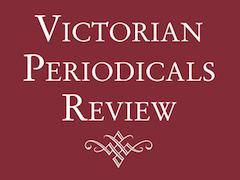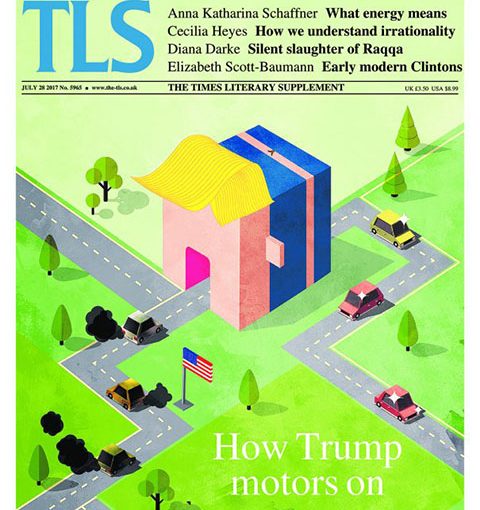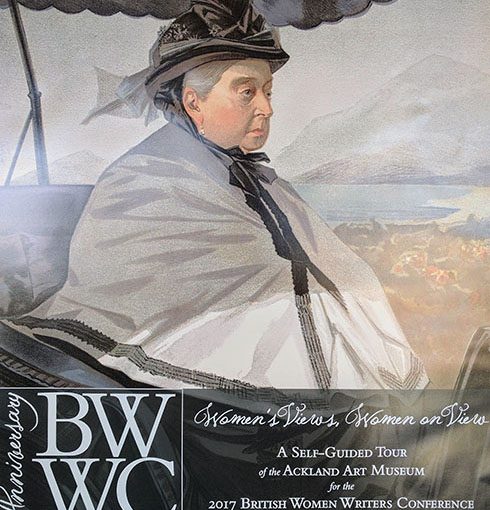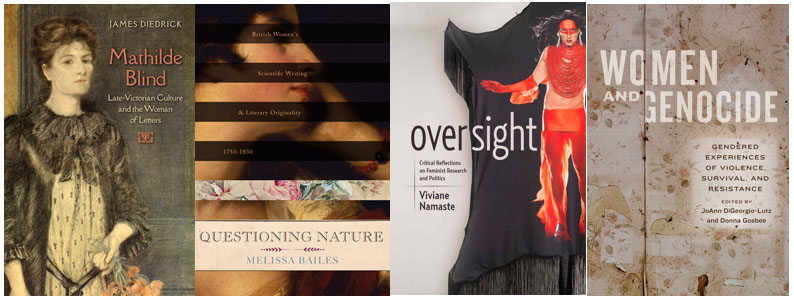[NOTE: I presented this short paper at a Roundtable on “Women’s Transnationality” at the 25th annual British Women Writers Conference, held June 21-24 at the University of North Carolina at Chapel Hill. The Roundtable was organized and moderated by Linda K. Hughes, Texas Christian University; the other four panelists were Beverly Taylor (UNC Chapel Hill); Marjorie Stone (Dalhousie University); Deirdre d’Albertis (Bard College); and Heidi Hakimi-Hood, Ph.D. candidate, Texas Christian University. Some of the material for this presentation comes from my biography Mathilde Blind: Late-Victorian Culture and the Woman of Letters, University of Virginia Press, 2017]
“A dangerous curiosity for an undiscovered world”: Mathilde Blind’s Radical Cosmopolitanism
If transnationalism is in part a means and method of thinking beyond the nation as a literary category and interrogating the formation and deployment of the concept of the nation-state across both time and space, then the work of the Anglo-German, Anglo-Jewish poet, political refugee, radical feminist and socialist Mathilde Blind provides an excellent example of how certain Victorian writers pioneered this project. In my brief remarks today, I want to show how her political affiliations inform her literary practice, and how her writing embodies this transnational perspective. I will be using three terms during my discussion, and I hope to suggest both how they overlap and how they diverge: internationalism, transnationalism, and cosmopolitanism.
To begin with the first of these terms: both liberal and socialist versions of internationalism were circulating in the 1870s, when Blind began publishing under her own name, and she was firmly aligned with the socialist camp. The liberal version derived from Kant’s essay on “Perpetual Peace,” in which he first advocated a “league of nations”—the inspiration for the organization established after World War I (which Blind’s stepsister half-sister Ottilie would campaign for). The socialist version envisions the eventual disappearance of nation-states, and this is where internationalism shades into transnationalism. While Blind supported the formation of independent national states (the goal of the European Revolutions of 1848, which her mother and stepfather participated in) and later Irish Home Rule, she was also one of those who looked toward an altogether different future. In the words she used to translate David Strauss’s unsympathetic definition of cosmopolitanism in The Old Faith and the New (1873), she would “have the large consolidated states resolve themselves into groups of small confederated republics, organized on the socialistic principle, between which, thenceforth, differences of language and nationality could no longer act as barriers, or prove the cause of strife” (301). Since I won’t have time to discuss her poetry in any depth today, it is worth noting that Blind’s poetry consistently gestures toward this imaginary Europe, what Christopher Keirstead in Victorian Poetry, Europe, and the Challenge of Cosmopolitanism calls an “ever-impending Europe of the future” (3). And now that I’ve introduced this third term, I want to spend a few minutes discussing Blind’s distinctive cosmopolitanism.
In 1872, the same year she began reviewing for The Athenaeum and published her edition of selected poems by Shelley, another Anglo-Jewish writer, Benjamin Disraeli, delivered his Crystal Palace speech, in which he castigated those who, like Blind, professed cosmopolitan views—in terms that remind us of the politically charged nature of late-Victorian cosmopolitanism. Delivered two years before Disraeli would return as Prime Minister to lead the Tory government for the next four years, this speech illuminates the reasons Blind’s career and writing mattered to her contemporaries, and why her story still speaks to contemporary cultural debates. Disraeli aligns the Conservatives with “nationalism” and the Liberals (and their leader William Gladstone) with “cosmopolitanism,” which he equates with radicalism on the Continent. He also attempts to enlist the British working classes in the Conservative cause, claiming they “repudiate cosmopolitan principles. They adhere to national principles. They are for maintaining the greatness of the kingdom and the empire, and they are proud of being subjects of our sovereign and members of such an empire” (10). Blind’s anti-monarchical, antitheist, anti-imperialist ideas, not to mention her socialism, made her an unnamed target of Disraeli’s speech.
Disraeli’s dichotomies obscure what are in fact a range of complex political positions. His opposition of “nationalism” and “cosmopolitanism,” for example, leaves no room for Blind and her friend William Morris, socialists who also “adhered” to “national principles” in the sense that they were English citizens who organized to support national movements in Germany and Italy. Moreover, Blind and Morris were simultaneously cosmopolitans, socialists and aesthetes, and their careers challenge those who have cast the aesthetic movement as the apolitical precursor to the avant-garde. Borrowing a phrase from Friedrich Nietzsche, Regenia Gagnier describes late-Victorian cosmopolitans like Morris as “citizens of the world” who “perceived no conflict between individualism and the social state, who never fell “into the depoliticized idealism that that phrase evokes today” (137). This is especially relevant to Blind, whose career coincided with the revival of socialist internationalism in Britain, Europe, the Americas, and Australasia (the Second International was formed in Paris in 1889, the year Blind published The Ascent of Man, many of whose poems express a kind of apocalyptic socialism). Like her countryman Nietzsche, —whose books Beyond Good and Evil and Human, All Too Human her friend Helen Zimmern would translate into English — Blind writes from the perspective of those “free spirits” or “good Europeans” who in Nietzsche’s words are characterized by “a dangerous curiosity for an undiscovered world,” one that “flames and flickers up in all the senses” (4).
Blind’s cosmopolitan identity is distinct from that of Morris, however, and not only because of her gender. In William Michael Rossetti’s loaded words, “she was of Jewish race” (2: 388). Though she was thoroughly secular in her outlook, and unlike her friend Amy Levy did not self-identify as Jewish, she was often identified as such in ways that also cast her as an outsider. This is important because one of the late-century debates concerning cosmopolitanism is directly bound up in questions of Jewish identity and citizenship. Were Jews considered “rooted” citizens of their nations, or “rootless cosmopolitans”? Anti-Semites cited Svengali (in fiction) and the Rothschild banking family (in fact) as proof of the latter. In this debate, “cosmopolitan” is a pejorative term meaning stateless and not deserving of a state, as in the myth of the Wandering Jew. Though Blind was herself a self-confessed wanderer, and frequently traveled on the Continent, she also thought of herself and described herself as English. At the same time, she identified and sympathized with those struggling for self-determination on the Continent as well as in Scotland and Ireland—a sympathy linked in part to her awareness of the Jews’ history of being treated as aliens. For this reason Nathan Sznaider’s Jewish Memory and the Cosmopolitan Order provides a valuable framework for discussing Blind’s subject position, especially his appropriation of Anthony Appiah’s concept of “rooted cosmopolitanism” (618)
Sznaider’s observation that throughout much of their history, Jews were both a nation and cosmopolitan, living in a constant tension between particularism and universalism, also relates to two other late-Victorian debates. The first concerns nationalism and internationalism, which I outlined above. The second, related late-century debate concerns particularism and universalism. Sznaider writes that the Jewish experience “straddles the interstices of universal identifications and particular attachments,” and that cosmopolitanism “combines appreciation of difference and diversity with efforts to conceive of new democratic forms of political rule beyond the nation-state” (5) Blind was a child of the German Enlightenment who imbibed the totalizing ideas of Kant, Hegel, Feuerbach, Strauss, and Marx—and later Comte, Wollstonecraft, and J. S. Mill. And her own universalist ideals—concerning universal suffrage, equality of the sexes, the religion of humanity, and socialism—were shaped by them. Yet they were also productively complicated by her particular experiences of alienation—as a Jewish female, a sexual nonconformist, a political radical, and an expatriate. She understood that those who formulated universalist ideals often ignored the realities of race, class, and (in particular) gender. Her writing does not. Like “cosmopolitanism” as defined by Sznaider, it is “sensitive to historic cultural particularities, respecting the specific dignity and burden of a group, a people, a culture . . .” (6).
To link this overview of Blind’s political allegiances to our contemporary literary discourse, I argue that for Blind cosmopolitanism is not figured, to use Tanya Agathocleous and Jason Rudy’s terms, as “the false idealism of globalization and the cultural logic of neoimperialism,” but as “globalization’s critical edge, an ethos that attempts to encompass all humanity while remaining attentive to the pitfalls of humanism” (390). In Amanda Anderson’s usage, cosmopolitanism is an ethical and characterological stance intrinsic to the detached outlook of Victorian narrators and cultural critics. Blind, as Anderson argues about other Victorian writers, was “self-consciously pluralistic” (30) and politically “enabling” (4). Blind’s work is especially critical of the hierarchies of nationality, race, class and gender” that Lauren Goodlad and Julia Wright claim much Victorian literature mounts “comparatively inert” challenges to, or even embraces. Blind’s cosmopolitanism is always already in dialogue with issues of nationalism and imperialism. In this sense, her cosmopolitanism exists, again in Agathocleous and Rudy’s words, as “nationalism’s dialectical other” (392), contesting the imperialist forces underwriting its existence.
One example from Blind’s poetry will need to suffice here. Tricia Lootens argues that Elizabeth Barrett Browning’s “The Runaway Slave at Pilgrim’s Point” helps identify the transatlantic poetess tradition as one that strives to convert women’s powerlessness to a form of extranational power. The Heather on Fire: A Tale of the Highland Clearances, published in the midst of the Crofters’ War of the 1880s, expresses this power. Crofters were the Scottish peasant farmers and fisherman who had earned a subsistence living from the land for generations; the war was fought with such bitter ferocity that the British government sent gunboats to the west coast of Scotland and stationed policemen and troops on the Hebridean islands. The conflict was rooted in the Highland Land Clearances that began in the eighteenth century and accelerated in the 1830s, the decade which is the setting of Blind’s poem. One of the most infamous mass evictions of a class of people in British history, the clearances were part of the transformation of the west of Britain from a paternalistic society based on ties of kinship to a capitalist one based on commercial and exploitative landlordism. Crofters were brutally evicted from their homes and property, first to make way for sheep grazing, then for hunting grounds for wealthy British and American sportsmen. In the preface to her poem, Blind emphasizes that the atrocities rendered in her narrative are historical, not imaginative, and that “the uprooting and transplantation of whole communities of Crofters from the straths and glens which they had tilled for so many generations must be regarded in the light of a national crime” (2). The Heather on Fire gives the clearances a local habitation and a name. Its 181 octave stanzas, all composed of heroic couplets and each ending with an Alexandrine line, tells the story of a family destroyed by actions of English landlords, one of whose agents boasts:, “of all these dirty huts the glen we’ll sweep, / And clear it for the fatted lowland sheep” (61).
I won’t discuss the poem at length here, or the ways in which it engaged contemporary Parliamentary debates about land reform (beyond noting that the poem appeared the same year that Gladstone introduced the contentious Irish Home Rule Bill in Parliament, marking the beginning of the end of British domination of Ireland). Instead I want to note the ways in which it was perceived by one of Blind’s closest friends, the pre-Raphaelite painter Ford Madox Brown. He was particularly attuned to the ways in which Blind’s perspective as a rooted cosmopolitan—critical of the imperial designs and practices of empires, whether British, German or Russian—gave her a critical perspective on the clearances that native-born writers lacked or simply declined to exercise.
Brown’s comments on The Heather on Fire reflect his advocacy of her poetry, including his interventions on her behalf, as well as the ways in which her perspective as an expatriate engendered insights beyond those of her native-born contemporaries. On 13 April 1886, writing to his friend Marion Harry Alexander Spielmann (the art critic for the Pall Mall Gazette and editor of the Magazine of Art), Brown says that Blind’s poem on “the crofters . . . produced almost entirely in our house here in Manchester,” is about to be published. Then he praises the poem for going “deeply into the matter” before calling it “strange” that Scots writers and reformers like Carlyle and Henry Brougham (who helped pass the Slavery Abolition Act of 1833 when he was Lord Chancellor) should “have been holding forth to spellbound listeners in Edinburgh and London and neither of them to have uttered (or shown that they knew) a word on the subject.” Brown suggests why: “so clearly do the English nation screen their peccadillos from too ardent glare of publicity” (English MS., Rylands Library University of Manchester). Brown wrote to Spielmann again on 22 April, thanking him for inserting a notice about Blind’s biography of Madame Roland in the Pall Mall Gazette and observing with bitter humor that “there is fear of such a small book being overlooked among the many other half-crown affairs which are devoted to impure actresses and mistresses of Royal Princes and others scarcely worthy to be written about” (English MS., Rylands Library University of Manchester). For Blind, the Highland Clearances represented the depradations inflicted by the English state on its one-time quasi-colony, and exemplified the abuses of imperial power. Indicting past imperial practices, she also created a narrative poem that constitutes an important instance of post-colonialism avant la letter.
Works Cited
Agathocleous, Tanya Agathocleous and Jason R. Rudy. “Victorian Cosmopolitans: Introduction.” Victorian Literature and Culture 38(2):389-397.
Anderson, Amanda. “Cosmopolitanism, Universalism, and the Divided Legacies of Modernity.” In Cheah, Pheng, and Bruce Robbins, eds., Cosmopolitics: Thinking and Feeling Beyond the Nation. Minneapolis: U of Minnesota P, 1998.Cheah and Robbins. 265-89.
Appiah, Kwame Anthony. “Cosmopolitan Patriots.” Critical Inquiry 23, no. 3 (1997): 617-39.
Disraeli, Benjamin. “Conservative and Liberal Principles.” National Union 16 (1872): 9-11.
Blind, Mathilde. The Heather on Fire: A Tale of the Highland Clearances. London: Walter Scott, 1886.
Gagnier, Regenia Individualism, Decadence and Globalization: On the Relationship of Part to Whole, 1859–1920 (Basingstoke: Palgrave Macmillan, 2010.
Goodlad, Lauren M. E., and Julia M. Wright. “Introduction and Keywords.” Special Issue on “Victorian “Internationalisms.” Romanticism and Victorianism on the Net 48 (2007). Web. 22 Jan. 2009.
Kant, Immanuel. “Universal History with a Cosmopolitan Purpose.” Perpetual Peace and Other Essays on Politics, History, and Morals. Trans. Ted Humphrey. Indianapolis: Hacket, 1983, 29-40.
Keirstead, Christopher M. Victorian Poetry, Europe, and the Challenge of Cosmopolitanism (Columbus: Ohio State University Press, 2011.
Lootens, Tricia. “States of Exile.” In The Traffic in Poems: Nineteenth-century Poetry and Transatlantic Exchange, ed. Meredith L. McGill. New Brunswick, N.J. : Rutgers University Press, c2008.
Nietzsche, Friedrich. Human, All Too Human. Translated by Helen Zimmern. 2 vols. Edinburgh: T.N. Foulis, 1909.
Rossetti, Willliam Michael. Some Reminiscences of William Michael Rossetti. Vol. 2. New York: Scribner’s, 1906.
Sznaider, Nathan. Jewish Memory and the Cosmopolitan Order. Cambridge and Malden: Polity Press, 2011
Strauss, David. The Old Faith and the New: A Confession. 2 vols. Translated by Mathilde Blind. London: Asher, 1873.



